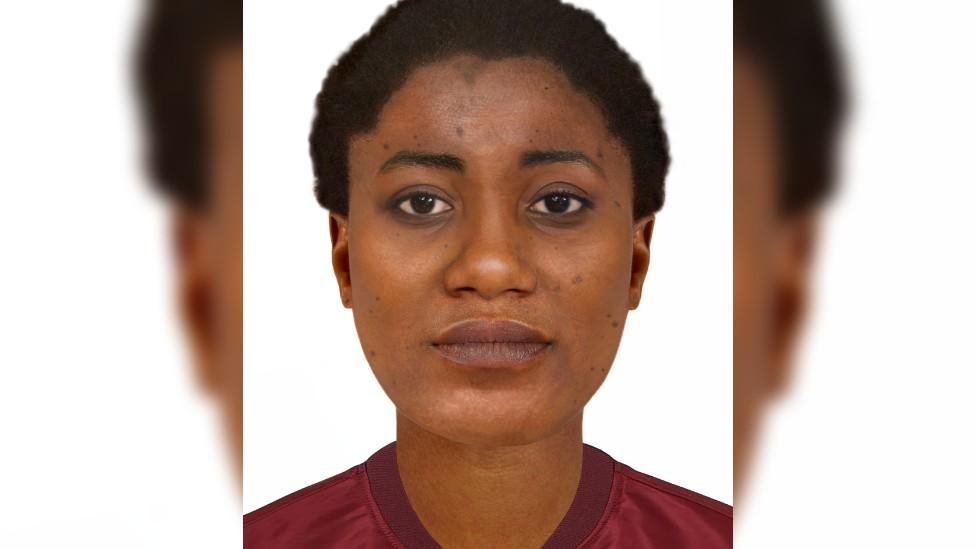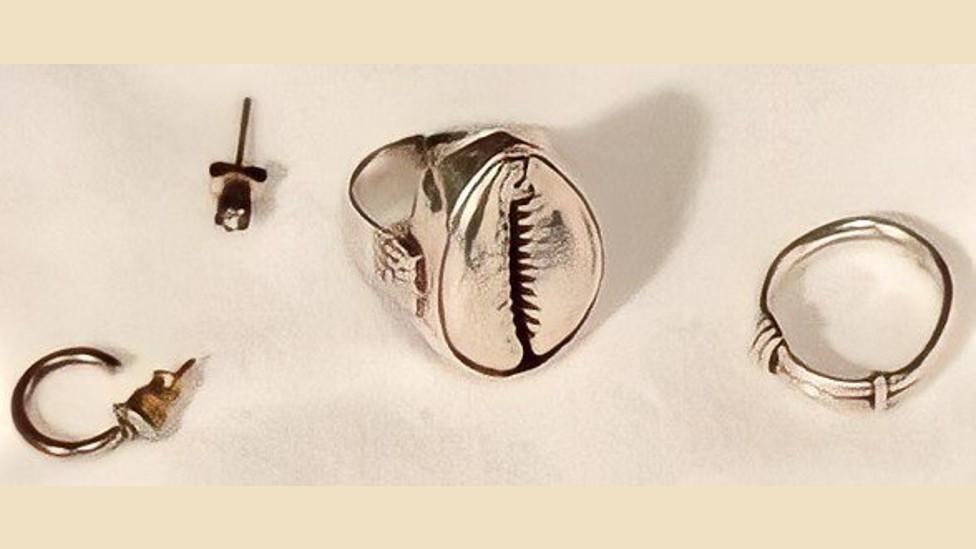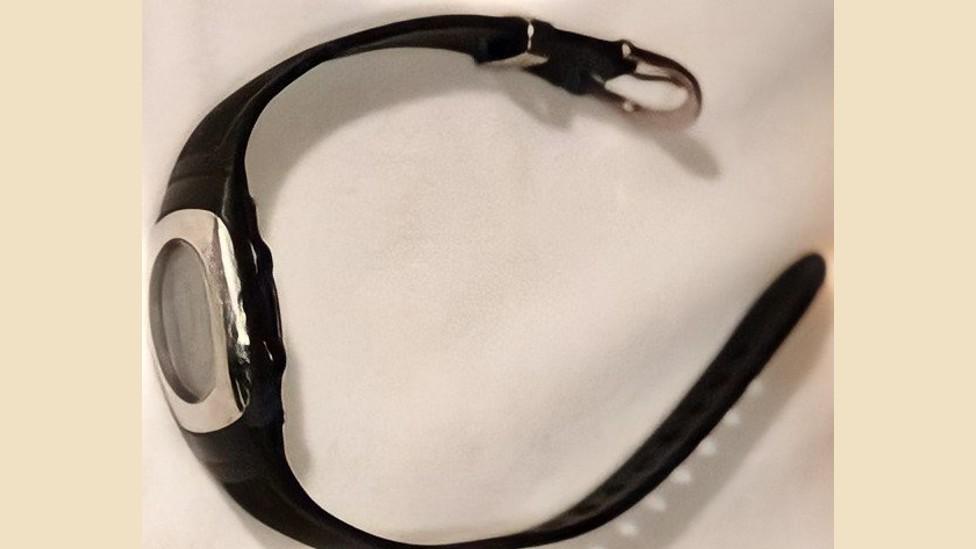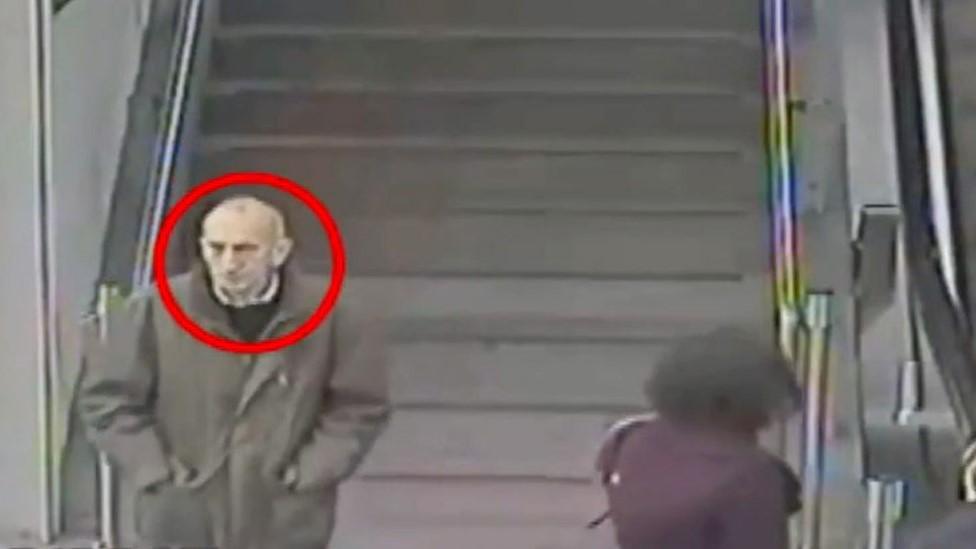Wembley Point Woman pictured 18 years after death
- Published

The charity released the image on the 18th anniversary of the mystery woman's death
An image of what an unidentified woman is thought to have looked like has been released - 18 years after her death.
Known as the Wembley Point Woman, she was found dead in a river at the foot of the London building - now called the WEM Tower London - on 29 October 2004.
She was unable to be identified despite efforts by authorities.
The picture has been released by charity Locate International, which is seeking to found out who she was.
Founder Dave Grimstead said any information, no matter how small, may be crucial to solving the case.
Forensic artist Hew Morrison created the picture as part of the charity's appeal which also featured images of various possessions she had with her at the time of her death.
They included a watch and jewellery she was wearing that day along with an oil painting that she left in a café on the building's 21st floor before, it was understood, she fell to her death.
Mr Grimstead said that witnesses with new information about the woman had recently come forward and he hoped the latest appeal would establish her name.
"What's unusual here is that we know the answers to [most] questions," he explained.
"The only thing we don't know is who Wembley Point Woman is, or how she came to be at that location at that time."

An image of the jewellery the woman was found wearing has also been released
Witness have reportedly told the charity that they saw the woman looking "distressed" in the lift of the west London premises shortly before her death.
Her body was later found in the River Brent by the tower.
She was buried in Carpenders Park Lawn Cemetery, near Watford, in a common grave with no name, Mr Grimstead said.

This painting was discovered at a café table where the woman sat before her death
At the table where she had been sitting in the café, a distinctive 2ft (60cm) x 1ft (30cm) oil painting was found, depicting two figures and a number of faces, with an empty white gap in the middle.
She also had a black carrier bag with the clear lettering CPNY, which, the charity believed, was from the London-based chain of shops Central Park.
She also left behind a used packet of Marlboro cigarettes, a copy of that day's Guardian newspaper, and a seven-day bus pass issued at 07:07 BST on Tuesday, 26 October 2004 on Seven Sisters Road.
She is thought to have had a link to the Seven Sisters area, and to have been familiar with Wembley Point in some way.

The pictures have been released in an effort to discover the woman's name
The charity is keen to trace anyone who worked in the building at the time, including then-employees of companies such as Loot, TNS, Loud and Clear Mental Health Advocacy and the American University in London.
Locate International understands that the tower used to host art exhibitions and is also keen to hear from anyone involved in these.
HR managers who worked in the building at the time and may have had an employee suddenly stop turning up for work in late October 2004, or stop claiming their pay, were also urged to make contact.
The woman is described as black, aged between 20 and 40, and about 5'1" to 5'3" (157cm to 162cm) in height.
At the time of her death, she was wearing a maroon bomber zip-up jacket with fabric cuffs, a black leather glove on her right hand along with a thin, black polo jumper and a claret, crew-neck jumper.
She also wore black tights, trousers and black Skechers boots with a zip and buckle on the sides.

Follow BBC London on Facebook, external, Twitter , externaland Instagram, external. Send your story ideas to hellobbclondon@bbc.co.uk, external
Related topics
- Published28 September 2022

- Published10 February 2017

- Published14 March 2016
